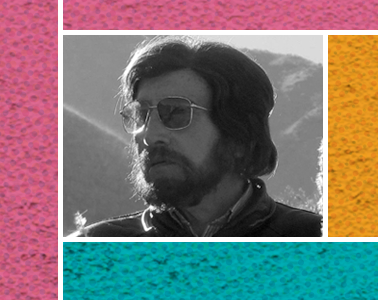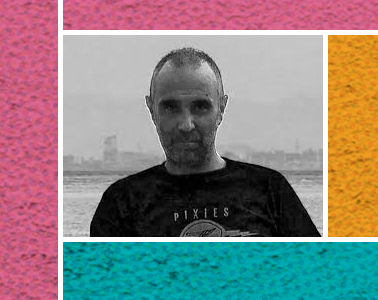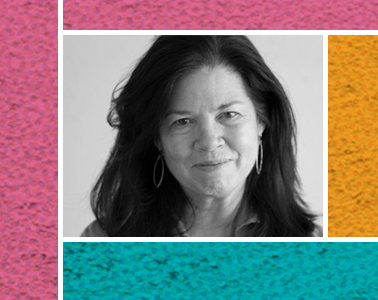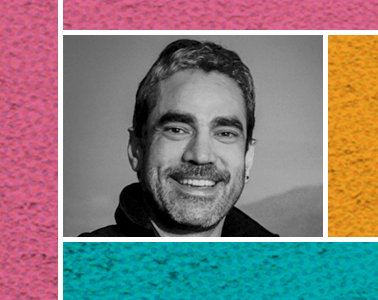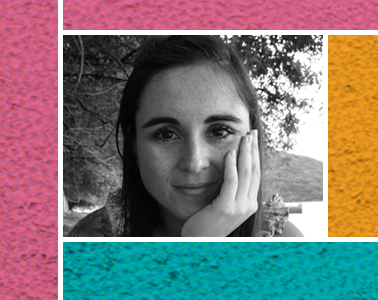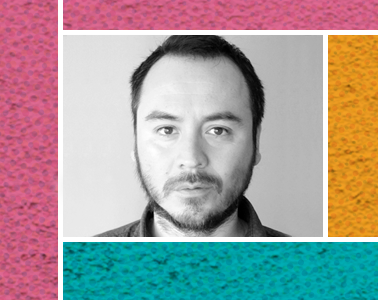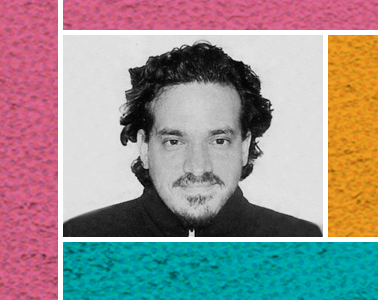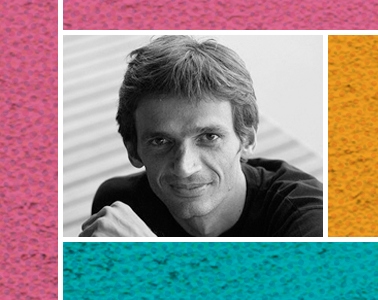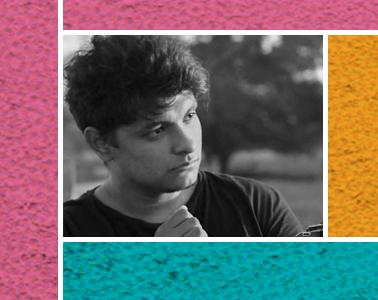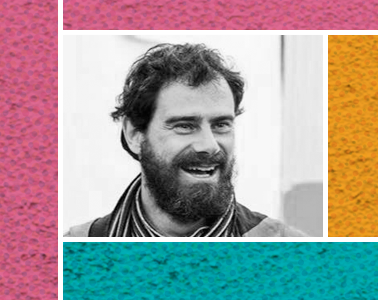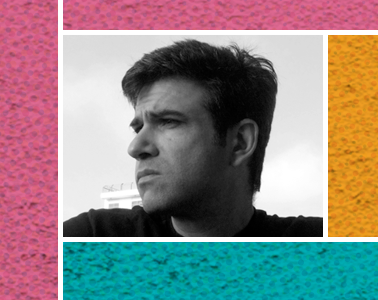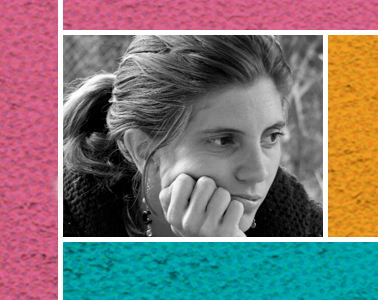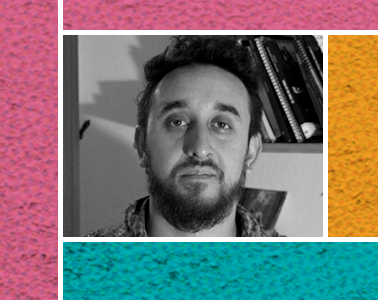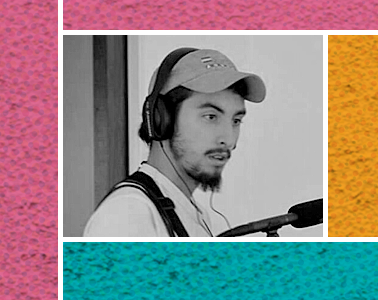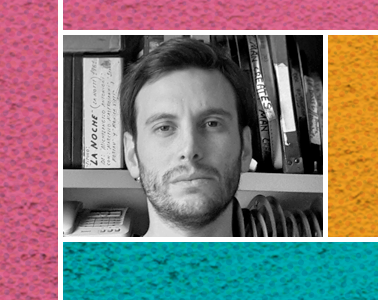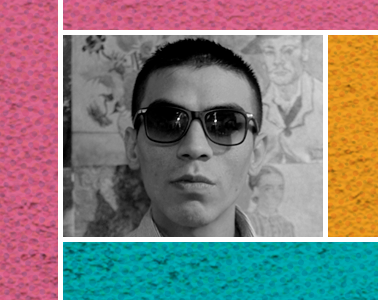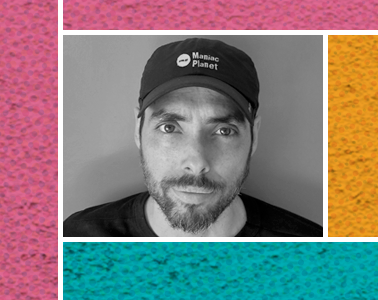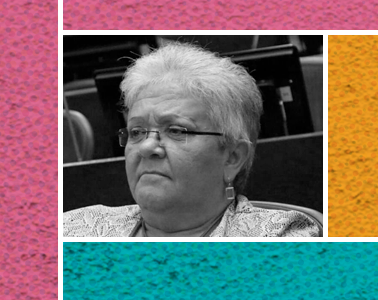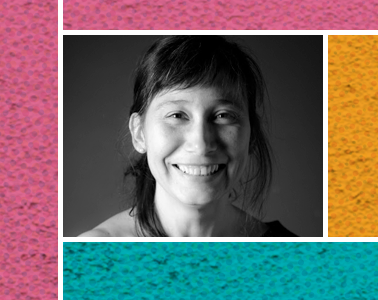JORGE SANJINES
Director, Juana Azurduy / SA
Director and scriptwriter Jorge Sanjinés — born in La Paz, Bolivia, on July 31st, 1936 — is considered to be one of the most prominent and prolific Bolivian film directors. His body of work in the film industry has left an indelible impression in society, particularly because his films involve the actual, collective protagonists of the stories he tells.
In 1966, Ukamau won the Young Director Award at the Cannes Film Festival. In UNESCO's 1992 celebration of a century of cinema, the organization selected Yawar Mallku as one of the 100 best films out of 10 million productions that had been made to date worldwide. In 1989, La nación clandestina won the Golden Shell for Best Film at the San Sebastian International Film Festival. In 2004, the Ukamau Group reinforced their strong commitment by releasing their latest work, Los hijos del último jardín.
JO SOL
Director, Vivir y otras ficciones
Early on in the '90s, Jo Sol took on his first productions, focusing on visual anthropology in Cuba, Mexico and India, where he spent five years, from 1992 to 1997. In 1998, Sol made his first fiction piece, the TV film Renda Antiga, as well as the short film 0,7, YA!, winner of the People's Choice Award at the Huelva Ibero-American Film Festival. In 2000, he premiered his first feature-length film: Tatawo, screened at various film festivals worldwide and distributed internationally as Tatoo Bar. In 2005, he released a mockumentary, El taxista ful. In 2008, he embarked upon a research journey that would eventually lead to the film Fake Orgasm. In 2012, he wrote the script for the film El somni, by the Roca brothers and Franc Aleu. In 2016, he premiered Vivir y otras ficciones at the San Sebastian International Film Festival in the Official Selection as a film included out of competition.
MAYA GODED
Director, Plaza de la soledad
Photographer / SA
Through photographs, films and documentaries, Maya Goded gives us a look into intimate stories while constantly questioning preconceived notions, revealing little-known realities and celebrating otherness. She tackles subjects like gender issues, identity, violence and ancestry using curiosity as a starting point and relying on different platforms and languages.
Her documentary Plaza de la soledad has earned her invitations to several film festivals as well as best documentary awards.
She has held photography exhibits in the United States, Latin America, Europe, China and Africa. Her work has been showcased in individual exhibits at the world's most prestigious museums and photography events. Some of her photographs have become part of private and public collections like The Wittliff Gallery of Southwestern & Mexican Photography (Texas, United States), Comunidad de Madrid (Madrid, Spain), Margolis Foundation (Tucson, United States) and the California Museum of Photography (California, United States.)
PAMELA YATES
Director “500 years”
Pamela Yates co-founded Skylight Pictures, a production company specialized in documentaries and digital platforms with a view to promoting human rights. Her latest documentary, Granito: How to Nail a Dictator, served as key evidence in the genocide trial against Gen. Ríos Montt in Guatemala.
ÁLVARO DE LA BARRA
Director “Venían a buscarme”
A Chilean-Venezuelan filmmaker, Álvaro de la Barra has worked as photography director in several documentaries and feature-length fiction films. His latest projects as a filmmaker and producer were “Paralelo 33”, by Carolina Larraín (Chile, 2017), “La ley”, by Pablo de la Barra (Venezuela, 2013) and “La familia”, by Gustavo Rondón, which he co-produced (Venezuela-Chile-Norway, 2017). He is currently working on his second feature-film. His first feature-film was “Venían a buscarme” (They Were Coming to Get Me).
JUAN FRANCISCO “PACO” DE ONIS
Producer “500 años”
Paco de Onís is an executive director at Skylight, a human rights media organization dedicated to promoting social justice through alternative narratives. One of Skylight’s programs is SolidariLabs, designed to spread Skylight’s innovative approach to creating human rights media ecosystems by bringing together filmmakers, artists, technologists and social leaders. Paco’s producing credits include 500 Years, Granito: How to Nail a Dictator, Rebel Citizen, State of Fear and The Reckoning: The Battle for the International Criminal Court.
TERESA SALINAS
Producer “Hombre eléctrico”
Master of Arts in Documentary Practice from the University of Bristol, a journalist with a Communication degree from USACH, she did a specialization in film development, executive production and documentary writing at EICTV. A partner at the production house Yestay, a screenwriter, producer and director specializing in pieces that revolve around identity and memory, inspired by the imposing geography of the Atacama Desert, where she comes from. A professor of Executive Production, Project Design and Business Management for the Audiovisual Communication and Digital Communication programs at UNIACC.
ROBERTO JIMÉNEZ
Director “La resistencia de los metales”
Roberto Jiménez is a documentary filmmaker with a Master's degree in Screen Documentary from the University of London. He directed the documentary Tres Chinchineros (Chile-Germany, 2010), which won the Jury Special Prize at the IN-EDIT Festival (2010) and was part of the Official Selection in the Best Documentary category at the Guadalajara International Film Festival (2011). He was production assistant in the documentary Twelve Acres (Rajesh Thind Production Company, UK) and director of the documentary series Conexión Asia (Canal 13C, Chile).
LUIZA ZAIDAN GRANATO
MELKANAA Collective / Director “Fuoricampo”
The Melkanaa Collective is made up of 13 filmmakers hailing from different artistic and academic backgrounds—from film to visual arts, anthropology and art history. Melkanaa means “things to come” in Mandinga language. For us, it represents a major conceptual starting point that brings to the surface an extension of our narrative, that is, life itself, for the depiction of reality is but a moment in the lives of the characters, while their stories remain open. Fuoricampo is Melkanaa’s first film, whose strength and uniqueness lies in its diversity of points of view and authors.
PABLO ZAPATA
Director “Half Life”
Pablo Zapata is an independent filmmaker born in Margarita Island, Venezuela, in 1977. In his more than 15 years of experience, he has delved into several areas of the audiovisual industry: cinema, photography, videos, animation, music, sound, graphic design and web design, among others. He studied cinema at Universidad Central de Venezuela, in Caracas. Zapata has also volunteered in Venezuelan prisons, working for Cineclub Waleker/Cine Penitenciario as instructor, filmmaker and video editor.
RICARDO GOMES
Director “Baia urbana”
Marine biologist graduated from UFRJ, since 1997 has been filming the marine life of the beaches of Ipanema and Copacabana for the documentary “Mar Urbano”, 2014 (Official selection of Finca 2016 ,Argentina; Official Selection of Filmambiente 2015, Brazil). Founder of the Mar Urbano Institute, whose mission is to combat global warming and ocean acidification through the production of audiovisual content.
LUIS ÁNGEL MANJARRÉS
Director “Washina cainabi”
Luis Ángel Manjarrés, born on May 28th, 1994, in Villavicencio (Meta), Colombia, is a director and producer of media projects with five years of experience in the audiovisual industry. He has worked on several commercial projects, music videos and short films as director and photography director. Manjarrés also has received several awards for his work, including the first place in the fiction category at the Embrión university film festival for his short film “Isabel”.
CHRISTIAN CARMOSINO
Director “The long yellow road”
Born in Ventimiglia (Italy) in 1972. Graduate at Roma 3 University with a degree in short films. Director and producer, has 20 years experience in organization of film screenings. He worked at the National Film Library and now is Technical manager of the Audiovisual Production Center at Rome 3 University where he also coordinates a Master's in Documentary Films.
MARCELO BURD
Director “The senses”
A Buenos Aires native, he graduated as an architect from the University of Buenos Aires and as a filmmaker from IDAC (Instituto de Artes Cinematográficas de Avellaneda). As a filmmaker, he directed the following documentaries: Habitación disponible (2004), El tiempo encontrado (2014) and The Senses (2016) which were shown in several international film festivals. He has worked as a screenwriter and a script consultant for several fiction and documentary films. He teaches at the School of Communication Science of the University of Buenos Aires and the IDAC.
TERESA SAPORITI Y CLAUDIO REMEDI
Directors “Symphony in April”
Teresa Saporiti got her degree in Sound and Image Design from the University of Buenos Aires. She has directed the feature documentaries Nelly Omar Cantora Nacional (2014) and Symphony in April (2016). Claudio Remedi got a degree in Filmmaking from IDAC and in Audiovisual Arts Teaching from UNSAM. He has directed and produced the feature films Fantasmas en la Patagonia (1996), Agua de fuego (2001), ESMA/Memorias de la resistencia (2010), La historia invisible (2013), Fangio, viaje a la memoria (2012), La ilusión de Noemí (2014).
SEBASTIÁN CAMACHO
Director “La mirada indolente”
Sebastián Camacho is a sociologist who is currently studying Documentary Cinema at Universidad de San Martín. He has been a part of several artistic, social and audiovisual projects focused on cultural and territory-related matters in the district of La Matanza, Buenos Aires. He is the director behind the film La Mirada Indolente.
FELIPE RAMÍREZ VILCHES
Director “Murciélagos”
Born in Capital Federal in 1993, Felipe Ramírez Vilches is currently studying Image and Sound Design at the School of Architecture and City Planning of Universidad de Buenos Aires. Murciélagos, his first documentary, shows us how the players of team Murciélagos see the world through their love for soccer and their passion to outdo themselves. They lend their image and their voice to something they will never be able to see. This documentary is a piece meant to be appreciated by seeing people as well as blind people.
GONZALO EGURZA
Director, Schuld
Born in Buenos Aires in 1984, Gonzalo Egurza studied Film Direction at Universidad de Buenos Aires (UBA), from where he graduated. He teaches at his alma mater and at Universidad Nacional de Tres de Febrero (UNTREF). He is a founder member of the collective Arkhé and a member of the Continente visual arts research center at UNTREF. He was in charge of independent productions of Experimental Film, Video, Multimedia and Installations. He was awarded first place at the Independent Film Festival of La Plata (2011) and he received the Argentinean creation award at the Bienal de la Imagen en Movimiento (2012). He also received an honorable mention at the 22nd Curtas Vila do Conde and the public's award at FEDAXV (2015).
JOEL Y NATA NAVAS
Directors “Manuel”
Joel and Nata Navas were born in Mendoza in 1991 and 1989, and studied at the Cuyo Regional School for Cinema and at the Film and Design School of the National Cuyo University, respectively. They worked as technicians, producers and filmmakers in cinema, television and video. They did four fiction short films and participated in several festivals, where they received several awards, and are currently working on the post-production of their first fiction feature film.
ANTONELLA DEFRANZA
Director “Foto documento”
Antonella Defranza, Image and Sound Designer graduated from Universidad de Buenos Aires, has worked in advertising filmmaking and documentary scriptwriting. She taught screenwriting at the Universidad Popular Madres de Plaza de Mayo, and she also gave lectures on the audiovisual industry at IDAC and documentary cinema events. Foto documento is her first fiction short film to be screened at film festivals. Defranza is currently working on the script for the feature-film sequel to her short film, and she plans to shoot a feature-length documentary picked up by INCAA.
CÉSAR GONZÁLEZ
Director “Athenas”
César González has written several poetry books published under the pen name “Camilo Blajaquis”. He is the founder, director and editor of ¿Todo Piola?, a magazine of socio-political content featuring articles by young people from impoverished towns and neighborhoods, people deprived from their freedom, intellectuals, political activists and artists. It also features interviews with and drawings from these young people. González collaborates with alternative media like the magazines THC, Guarnin, Caras y Caretas and with newspapers Página 12 and Miradas al sur. His work in the film industry includes scriptwriting, directing, producing and editing several short films. His first feature film, Diagnóstico Esperanza (2013), won the official competition at FECICO 2013 (Film Festival of the Greater Buenos Aires) and received the 2014 LASA award to merit in film. His second feature film, ¿Qué puede un cuerpo? (2015), was uploaded to YouTube in March, 2015, and has over 250,000 views to date. He was the host of Alegría y dignidad, a TV documentary series broadcast by Canal Encuentro.
PABLO POLLEDRI
Director “Corp”
Pablo Polledri is an independent filmmaker. He enjoys being in charge of every step of his creative projects. Polledri produced several short films screened at film festivals around the world. Some of his short films include “El último viaje” (2006), “Los pecadores“(2007), “Lágrimas demasiado tarde” (2007), “La mitad del amor” (2008), “Rechazo” (2010), “Incordia” (2010), “La máquina de Dios” (2011), “Apple Pie” (2011), “El candidato” (2012), “Momentos” (2012), and “Corp” (2016).
IMELDA DAZA COTES
SA
Imelda Daza Cotes (Valledupar, March 17, 1948) is a Colombian-Swedish economist, educator, social activist and politician, a council member in Sweden until 2018 for the Leftist Party and a member of the Colombian movement Voices for Peace. She was the first woman to preside over the Valledupar Council in Colombia in 1983 and was elected to be a council member for the Patriotic Union in the 1986 elections. She took up exile in Sweden for 26 years. There, she was a council member for 12 years for the Social-Democratic Party and, since 2014, for the Leftist Party. She returned to Colombia and was chosen as one of the six members of the organization Voices for Peace, a citizen-driven initiative with representation in the Colombian Congress to support the implementation of the peace agreement between Juan Manuel Santos’ administration and the FARC-EP.
ORLAN
SA
Mireille Suzanne Francette, best-known as ORLAN, is a French artist famous for her performances, in which she changes her body through surgical procedures in an attempt to challenge current beauty standards while discussing gender issues. She received formal training in art at the Getty Research Institute in Los Angeles. She began her career in 1964 with "Marches au ralenti" ("Slow Motion Walks”), as a prelude to May ‘68, a project that included several performances. Among her initiatives was the creation of her own unit of measurement, the ORLAN-body, which she used to measure the Vatican, of all places. Her art reached a peak in 1990 with The Reincarnation of Saint-Orlan, in which she comes up with the concept of Carnal Art, transforming herself into a hybrid being made up of elements from different paintings and sculptures of iconic women in art history. Through her works, she has questioned the typical Western female imagery to criticize how women today are subjected to and, in many cases, enslaved by predefined beauty standards. Using her body as an art object was a turning point when it comes to defining the boundaries of art and of artists themselves.
MANUELA ALDABE TORIBIO
Photographer / Photography Exhibit
Manuela Aldabe was born in Montevideo‚ Uruguay, in 1975. In 1998, she traveled to Italy to study photography at the Scuola Scienza e Tecnica del Municipio di Roma. While in Rome, she also studied History and Communication. She lived in Europe until 2010, when she returned to Uruguay. She has lived there ever since and, since 2011, she has been participated in photography workshops alongside Adriana Lestido and she has been a part of Sismo, an international art program curated by Daniel Fischer. She has been a collaborating photographer at Semanario Brecha and Revista Lento (La Diaria) and carried out photo campaigns for UNFPA‚ Antel, the Ministry of Public Health, and others. She was awarded funds for cultural projects through the program Fondos Concursables para la Cultura and, as of 2017, she is working on a national photography project against femicide. Aldabe also teaches Photography at the women's prison, the Centro Cultural Goes‚ the Centro Cultural de España, Universidad de la República del Uruguay‚ secondary schools and UTU university. Her most notable exhibits were held at the Museo Nacional de Artes Visuales (during the 57 Salón Nacional de Artes Visuales), Cabildo de Montevideo‚ Dirección Nacional de Cultura MEC and the Universitá La Sapienza in Rome, Italy. In March of 2017, she opened her exhibition “Toco tu piel” (I Touch Your Skin) at Espacio IMPO (Diario Oficial del Uruguay).


